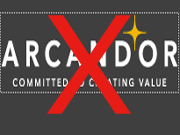MENU
Affiliates only
Login
Login

Arcandor’s downfall follows that of Woolworth with about 300 branches as well as other chains and seems to support the trend that the retail is becoming a fiercely contested business and the global economic crisis only supports this trend.
Researchers have already pointed to an “ALDI-effect” which describes a development where markets are being dominated by hard discounters such as ALDI, LIDL and TESCO and strongly supported by the current environment it seems like this trend will dominate the sector in the next 5 years. How strong this domination will be comes down to the gravity of the current economic crisis as consumers are likely to be increasingly conservative the longer the crisis continues.
The hard discounters may find the current economic climate very fruitful and they may wish to direct their expansion to the emerging market economies which could be found struggling harder to get out of the economic crisis as these countries may find it more difficult to obtain loans to revamp their economies. Countries like Romania, Bulgaria, Poland, Tanzania and India could find themselves to be targets of some of these hard discounters as the market for middle-priced and high-end retailers may be unattractive over the next few years. Alternatively high-end retailers may develop discount versions of the mother-company and launch these in the emerging market economies in order to secure a foothold in countries which hold a promise of future growth like India.
As hard-discounters have a history of being poor employers UNI Commerce is worried about the strengthened position of the hard discounters and thus find that speculations that German METRO Group intends to take over parts of the Arcandor group is good news.

For information on this visit: http://www.ft.com/cms/s/0/3c4d5ecc-5525-11de-b5d4-00144feabdc0.html
www.kamcity.com